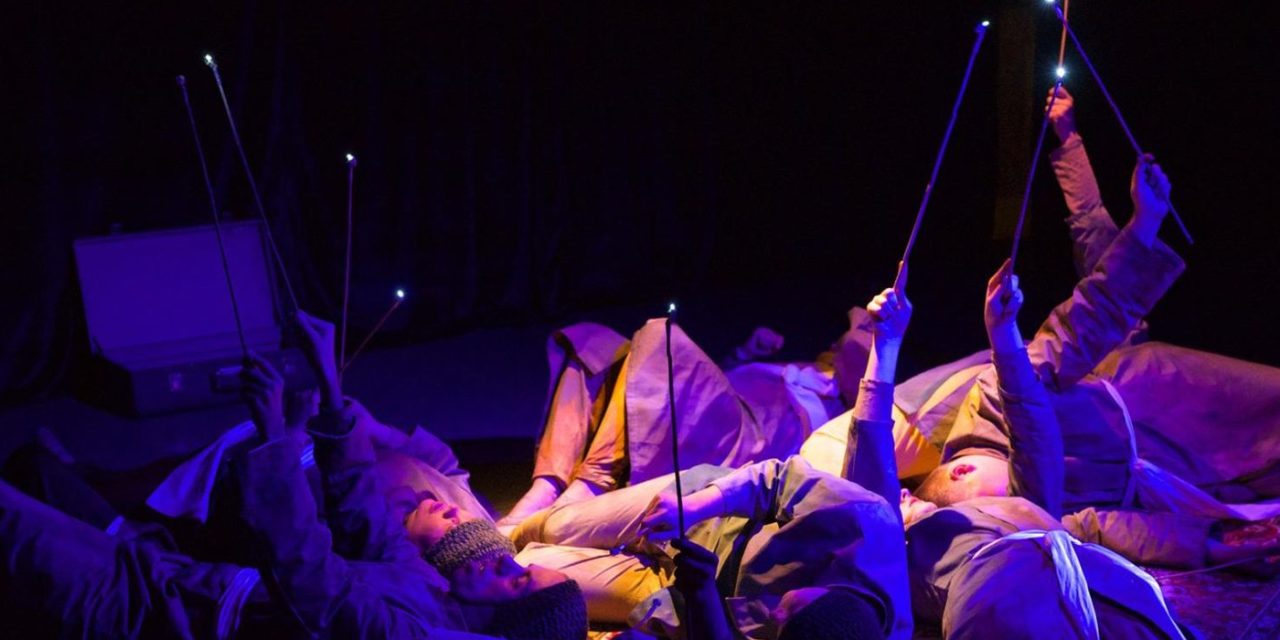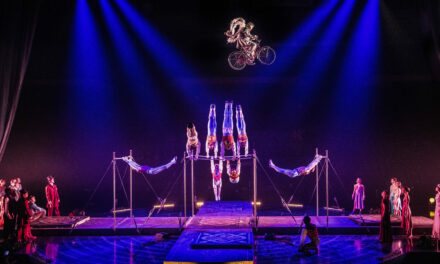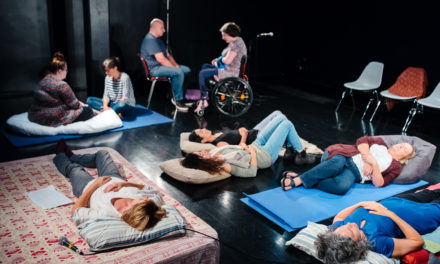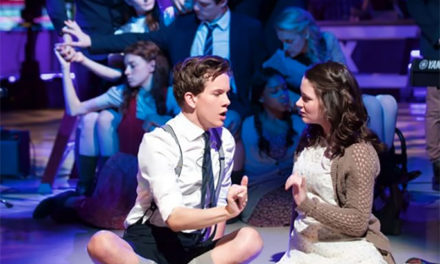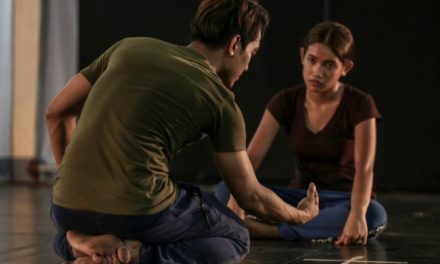Integrated Theatre Company KroogII is a non-profit organization dedicated to providing an enriching and creative experience for children and adults with mental disabilities. In the studio-style theater, they can perform in plays written by themselves and a director, participate in master classes, attend workshops where they can sharpen their skills in other areas of theatre, listen to lectures, and attend a summer camp. Their various seminars, training, and performances have earned them spots in festivals around Russia and various awards and nominations.
Manager Evelina Selionchik gave The Theatre Times insight into exactly how Theater KroogII is transforming Moscow theatre into a place where those with mental disabilities can express themselves artistically and make theatre a more inclusive art form.
What is Theater KroogII’s mission?
The theater’s mission is to create the conditions for people with mental disabilities, where they can live a full, productive, interesting life, realize their creative potential in theater work, perform on stage, find friends with the same interests, and enhance their quality of life.
What programs does Theater KroogII offer to individuals with disabilities?
We practice integrated working with children, adolescents, and adults with mental disabilities. We have a theatre part, “Kroog II,” where the participants learn movement, dance, rhythm, speech, music, singing, playing musical instruments, improvisation, etc. Also, there are art workshops, like “Okoyom,” where participants work with their hands, learn to be creative, and create products that are then sold at fairs. Most studio members attend both programs.
What is your role at Theater KroogII?
I am the manager of the theater. I organize the interaction and communication between internal departments within the organization. I organize activities and control the quality of these activities. But most importantly, I would like to mention that all the work that I do means nothing without my colleagues. Andrey Afonin is the Artistic Director of the theater, a mastermind and professional with 25 years of experience. Lena Osipova is a musician, psychologist, teacher, and methodologist. Olga Mitina is the producer of the theatre, Yana Savchenko and Nargis Abdullaeva are directors, Catherine Anenkova is a teacher and assistant director, Lisa Serova is the head of the workshop, Alexander Gurov is the accountant, and all the rest of our teachers and administrators are wonderful. I work with the best team in the world, I have amazing colleagues, and I am proud to work with such a professional and friendly team.
How do you go about finding actors and choosing shows?
Our actors are members of our Studio, they study 25-30 hours a week for several years. On some projects, we invite the usual professional actors to work together. We have many friends and partners with whom we maintain relationships, participate in their events, and bring our new projects. Also, we conduct systematic work to find new venues for performances, applying to various festivals, looking for new partners. At the moment we are playing 3 or 4 repertoire plays per month at various theaters in Moscow, and there are some places that invite us regularly to private parties or festivals, where we also enjoy performing.
Tell me about some of the performances that stand out to you the most. Why do they stand out to you?
One of my favorite performances is the Distant Closeness, a performance which received the “Golden mask” Russian national theatre award. For me, this show is about a multitude of worldviews, the diversity of life, and the infinity of points of view. And there’s awesome music. My second favorite performance is Beyond the Rhythm. This is a research rhythm of nature, music, color, light, and sound. After this performance, you can learn to see rhythm in everything, and it is also about expanding the perception of the world. All the music in this performance was composed by our actors themselves together with teachers.
Well and the third I want to talk about our music. We have probably 6 or even 8 hours of music in the repertoire. It’s the music and songs of the peoples of the world, different languages of foreign and local artists in the arrangement “Kroog II.” We often transform, changing the program depending on the context, and therefore never get the same performance. I love our music performances.
We have a lot of different performances for children, adults, and the whole family with different genres, styles, involving different actors, and different directors. It’s difficult to single out anyone. Now we have a repertoire of 4 performances: Forgotten tales, Sufi motifs, the Magical world of Narnia, and the School upside down.
Is disability integrated into Theatre KroogII’s performances or does Theater KroogII merely utilize disabled performers? If so, how?
Every performance is born in the dialogue with the actors with disabilities. The idea comes from a director, and then he begins to realize his creative idea in the dialogue with the actors. Actors with disabilities give a new look to familiar things, and this singularity becomes the highlight of performances. But you need to understand that the creation of the play involves a lot of hours of rehearsals, trainings, and a search for ways of expression. Some projects can take years of preparation.
The history section of your website states that you create your own unique stage language. Can you explain more about that?
The uniqueness of our stage language, in my opinion, is that people with disabilities on the stage ceases to be disabled. Simply put, for every actor we find such a role, such a place in the Studio and on stage, where he/she will be successful, and from which he/she can continue to grow. I like the definition from our Artistic Director, Andrey Afonin: “if the ‘special’ actor on the stage will be replaced by the usual actor and the performance became to be better, then it’s not a ‘special’ theater. We are doing a ‘special’ theatre on a professional level for the average viewer and proud of it.”
What are your ultimate goals for the future of Theater KroogII?
We strive to create an environment in which people with disabilities can live a full life, unleash their creativity, and become necessary to society, and in doing so, we hope the creativity of people with mental disabilities will be in demand.
This post was written by the author in their personal capacity.The opinions expressed in this article are the author’s own and do not reflect the view of The Theatre Times, their staff or collaborators.
This post was written by Madison Parrotta.
The views expressed here belong to the author and do not necessarily reflect our views and opinions.

